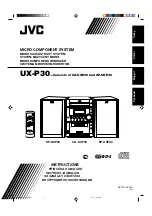
Garmin G1000 NXi Pilot’s Guide for the Cessna NAV III
190-02177-02 Rev. A
SY
STEM
O
VER
VIEW
FLIGHT
INSTRUMENTS
EIS
AUDIO P
ANEL
& CNS
FLIGHT
MANA
GEMENT
HAZARD
AV
OID
ANCE
AFCS
ADDITIONAL FEA
TURES
APPENDICES
INDEX
416
ADDITIONAL FEATURES
Selecting Day, Night, or Automatic View:
1)
While viewing a terminal chart press the
MENU
Key to display the Page Menu Options.
2)
Turn the large
FMS
Knob to highlight the ‘Chart Setup’ Menu Option and press the
ENT
Key.
3)
Turn the small
FMS
Knob to choose between Day, Auto, and Night Options.
4)
If Auto Mode is selected, turn the large
FMS
Knob to select the percentage field. Use the small
FMS
Knob to
change the percentage value. The percentage value is the day/night crossover point based on the percentage of
backlighting intensity. For example, if the value is set to 15%, the day/night display changes when the display
backlight reaches 15% of full brightness.
The display must be changed in order for the new setting to become active. This may be accomplished by
selecting another page or changing the display range.
5)
Push the
FMS
Knob when finished to remove the Chart Setup Menu.
IFR/VFR CHARTS
The system can display GPS navigation information on a VFR chart, a low altitude IFR chart, or a high altitude
IFR chart, if installed. The information overlaid on the IFR/VFR Charts is selected and setup on the Navigation
Map, but the IFR/VFR charts will not display some of the selected items. Only the following items will be
overlaid on the chart:
• Map Pointer (distance and bearing to pointer, location of pointer, name, and other pertinent information)
• Map Range (17 range choices from 1 nm to 150 nm).
• Map Orientation (always North Up for IFR/VFR Charts).
• Aircraft Icon (representing present position).
• Wind Direction and Speed.
• Icons for enabled map features (Traffic only).
• Flight Plan Legs.
• Track Vector.
• Runway Extension.
• Missed Approach Preview.
• Intersections (only as part of active flight plan).
• Visual Reporting Points.
• VNAV Constraints.
• Selected Altitude Intercept Arc.
Map panning on the IFR/VFR Charts works the same as on the Navigation Map. Map range selected on either
the Navigation Map or the IFR/VFR Charts applies to both. However, if the range selected on the Navigation
Map it is not a valid chart range, the chart is shown with a range of 7.5 nm.
When different VFR charts exist for the same area the chart type will automatically display according to the
range chosen. For example, in an area where both a Sectional and a Terminal Area Chart (TAC) are available, a
range of 6 nm or more will show the Sectional chart. Once the range is decreased below 6 nm, the system will
automatically change the displayed chart from the Sectional to the TAC.
















































